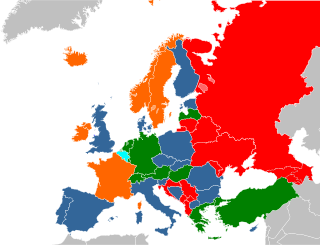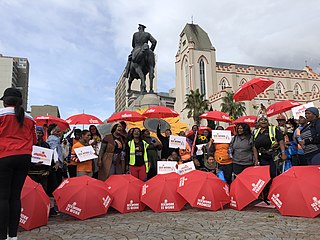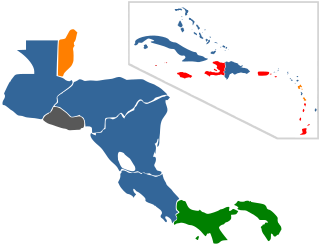Related Research Articles

A sex worker is a person who provides sex work, either on a regular or occasional basis. The term is used in reference to those who work in all areas of the sex industry.

Sex work is "the exchange of sexual services, performances, or products for material compensation. It includes activities of direct physical contact between buyers and sellers as well as indirect sexual stimulation". Sex work only refers to voluntary sexual transactions; thus, the term does not refer to human trafficking and other coerced or nonconsensual sexual transactions such as child prostitution. The transaction must take place between consenting adults of the legal age and mental capacity to consent and must take place without any methods of coercion, other than payment. The term emphasizes the labor and economic implications of this type of work. Furthermore, some prefer the use of the term because it grants more agency to the sellers of these services.

Male prostitution is the act or practice of men providing sexual services in return for payment. It is a form of sex work. Although clients can be of any gender, the vast majority are older males looking to fulfill their sexual needs. Male prostitutes have been far less studied than female prostitutes by researchers. Even so, male prostitution has an extensive history including regulation through homosexuality, conceptual developments on sexuality, and the HIV/AIDS, monkeypox, and COVID-19 epidemic impact. In the last century, male sex work has seen various advancements such as popularizing new sexual acts, methods of exchange, and carving out a spot in cinema.

Prostitution is illegal in the vast majority of the United States as a result of state laws rather than federal laws. It is, however, legal in some rural counties within the state of Nevada. Additionally, it is decriminalized to sell sex in the state of Maine, but illegal to buy sex. Prostitution nevertheless occurs elsewhere in the country.
Prostitution in Ireland is legal. However, since March 2017, it has been an offence to buy sex. Third party involvement is also illegal. Since the law that criminalises clients came into being, with the purpose of reducing the demand for prostitution, the number of prosecutions for the purchase of sex increased from 10 to 92 between 2018 and 2020. In a report from UCD's Sexual Exploitation Research Programme the development is called ”a promising start in interrupting the demand for prostitution.”
Prostitution in Turkey is legal and regulated. The secularization of Turkish society allowed prostitution to achieve legal status during the early 20th century. Known as "general houses" (genelevler) in the country, brothels must receive permits from the government to operate. In turn, the regulatory agencies issue identity cards to sex workers that give them rights to some free medical care and other social services. However, many local governments now have a policy of not issuing new registrations, and in some cities, such as Ankara and Bursa, brothels have been demolished by court order.
Prostitution in South Africa is illegal for both buying and selling sex, as well as related activities such as brothel keeping and pimping. However, it remains widespread. Law enforcement is poor.

Prostitution is the business or practice of engaging in sexual activity in exchange for payment. The definition of "sexual activity" varies, and is often defined as an activity requiring physical contact with the customer. The requirement of physical contact also creates the risk of transferring infections. Prostitution is sometimes described as sexual services, commercial sex or, colloquially, hooking. It is sometimes referred to euphemistically as "the world's oldest profession" in the English-speaking world. A person who works in this field is called a prostitute, and sometimes a sex worker, but the words hooker and whore are also sometimes used to describe those who work as prostitutes.
Current laws passed by the Parliament of Canada in 2014 make it illegal to purchase or advertise sexual services and illegal to live on the material benefits from sex work. The law officially enacted criminal penalties for "Purchasing sexual services and communicating in any place for that purpose."

Sex workers' rights encompass a variety of aims being pursued globally by individuals and organizations that specifically involve the human, health, and labor rights of sex workers and their clients. The goals of these movements are diverse, but generally aim to legalize or decriminalize sex work, as well as to destigmatize it, regulate it and ensure fair treatment before legal and cultural forces on a local and international level for all persons in the sex industry.
Prostitution in Zimbabwe and related acts, including solicitation, procuring, and keeping a brothel, are illegal but thriving. Zimbabwe's dire economic situation has forced many women into sex work.

The legality of prostitution in Europe varies by country.
The World Charter for Prostitutes' Rights is a declaration of rights adopted in 1985 to protect sex workers' rights worldwide. It was adopted on 15 February 1985 at the first World Whores Congress in Amsterdam by the newly formed International Committee for Prostitutes' Rights (ICPR). The Charter established a human rights-based approach to prostitution, demanding that sex workers be guaranteed freedom of speech, travel, immigration, work, marriage, motherhood, health, and housing, amongst other things. This approach has subsequently been further elaborated by the sex workers' rights movement.
Violence against prostitutes occurs worldwide, both through physical and psychological forms. The victims are predominantly women. In extreme cases, violent acts have led to their murder while in their workplace.
Melissa Farley is an American clinical psychologist, researcher and radical feminist anti-pornography and anti-prostitution activist. Farley is best known for her studies of the effects of prostitution, trafficking and sexual violence. She is the founder and director of the San Francisco-based organization, Prostitution Research and Education.

Prostitution laws varies widely from country to country, and between jurisdictions within a country. At one extreme, prostitution or sex work is legal in some places and regarded as a profession, while at the other extreme, it is considered a severe crime punishable by death in some other places. A variety of different legal models exist around the world, including total bans, bans that only target the customer, and laws permitting prostitution but prohibiting organized groups, an example being brothels.

The decriminalization of sex work is the removal of criminal penalties for sex work. Sex work, the consensual provision of sexual services for money or goods, is criminalized in most countries. Decriminalization is distinct from legalization.

Legality of prostitution in the Americas varies by country. Most countries only legalized prostitution, with the act of exchanging money for sexual services legal. The level of enforcement varies by country. One country, the United States, is unique as legality of prostitution is not the responsibility of the federal government, but rather state, territorial, and federal district's responsibility.

The Nordic Criminal Model approach to sex work, also marketed as the end demand, equality model, neo-abolitionism, Nordic and Swedish model, is an approach to sex work that criminalises clients, third parties and many ways sex workers operate. This approach to criminalising sex work was developed in Sweden in 1999 on the debated radical feminist position that all sex work is sexual servitude and no person can consent to engage in commercial sexual services. The main objective of the model is to abolish the sex industry by punishing the purchase of sexual services. The model was also originally developed to make working in the sex industry more difficult, as Ann Martin said when asked about their role in developing the model - "I think of course the law has negative consequences for women in prostitution but that's also some of the effect that we want to achieve with the law... It shouldn't be as easy as it was before to go out and sell sex."
There are about 220,000 women currently incarcerated in America. Over 30% of these women are convicted prostitutes. Much of the research on the sex industry in prisons focuses on the experiences of women because the number of jailed female sex workers greatly outnumbers men. Prominent issues that the criminal justice system and women who are incarcerated on prostitution charges currently face include the sexually transmitted infections and diseases epidemic, the sex-work-prison cycle, and the prison-to-sex-trafficking pipeline. Intervention and diversion programs, both within prisons and in traditional and specialty courts aim to address these issues, decrease recidivism, and provide these women with resources to assist them in exiting the sex trade. There are a variety of community-based organizations which seek to help resolve these concerns.
References
- 1 2 Levitt, S.D.; Venkatesh, S.A. (January 18, 2008). An Empirical Analysis of Street-Level Prostitution (PDF) (Report). Retrieved December 1, 2020.
- ↑ Tara Burns. People in Alaska's Sex Trade: Their Lived Experiences and Policy Recommendations (PDF) (Thesis).
- 1 2 Crabapple, Molly (January 6, 2015). "Special Prostitution Courts and the Myth of 'Rescuing' Sex Workers". Vice . Retrieved December 1, 2020.
- ↑ Thukral, J.; Ditmore, M.; et al. (2003). Revolving Door: An Analysis of Street Based Prostitution in New York City (PDF) (Report). Retrieved December 1, 2020.
- 1 2 Vitale, Alex S. The end of policing. Verso Books, 2021.
- 1 2 3 Fernandez, Fabian Luis (2016). "Hands Up: A Systematized Review Of Policing Sex Workers In The U.s." Yale University. Public Health Theses. 1085.
- ↑ Saunders, Penelope; Kirby, Jennifer (2010). "Move Along: Community-based Research into the Policing of Sex Work in Washington, D.C.". Social Justice. 37 (1 (119)): 107–127. ISSN 1043-1578. JSTOR 41336938.
- ↑ McLemore, Megan (December 2013). In Harm's Way: State Response to Sex Workers, Drug Users, and HIV in New Orleans (Human Rights Watch) (PDF) (Report). Human Rights Watch. Retrieved December 1, 2020.
- ↑ Gerntholtz, Liesl (August 7, 2019). "Sex Work Should be Legal — If Only to Protect Women from Police". Human Rights Watch.
- 1 2 3 Monroe, Jacquelyn (27 September 2005). "Women in Street Prostitution: The Result of Poverty and the Brunt of Inequity". Journal of Poverty. 9 (3): 69–88. doi:10.1300/J134v09n03_04. S2CID 143535787.
- 1 2 Sankofa, Jasmine (December 12, 2016). "From Margin to Center: Sex Work Decriminalization is a Racial Justice Issue". Amnesty International.
- ↑ Marc, Juno (2018). The Laws That Sex Workers Really Want. New York, NY: Routledge. p. 218. ISBN 978-1-138-05528-5.
- ↑ Hayes-Smith, R.; Shekarkhar, Z. (February 9, 2010). "Why is prostitution criminalized? An alternative viewpoint on the construction of sex work". Contemporary Justice Review. 13: 43–45. doi:10.1080/10282580903549201. S2CID 146238757.
- 1 2 3 4 Vanwesenbeeck, Ine (June 5, 2017). "Sex Work Criminalization Is Barking Up the Wrong Tree". Archives of Sexual Behavior. 46 (6): 1631–1640. doi:10.1007/s10508-017-1008-3. ISSN 1573-2800. PMC 5529480 . PMID 28585156.
- 1 2 3 Erauquin, Jennifer Toller (January 16, 2019). "Sex Work and Policing Practice in the United States". American Journal of Public Health. 109 (2): 186–187. doi:10.2105/AJPH.2018.304885. PMC 6336053 . PMID 30649943.
- ↑ Forestiere, Annamarie (October 1, 2019). "To Protect Women, Legalize Prostitution". Harvard Civil Rights–Civil Liberties Law Review . Retrieved December 1, 2019.
- ↑ True Crime Review (December 20, 2016). "Interrogation video of former Oklahoma City police officer Daniel Holtzclaw (unredacted)". YouTube . Retrieved December 1, 2020.
- ↑ Sedensky, Matt (November 1, 2015). "AP: Hundreds of officers lose licenses over sex misconduct". Associated Press. Retrieved December 1, 2020.
- ↑ Kaplan, Sarah (December 11, 2015). "A serial rapist cop's 'mistake': Assaulting the grandmother who finally reported him". Washington Post.
- ↑ Santos, Patty (November 13, 2015). "Woman testifies after showing up high to Daniel Holtzclaw trial high". KOCO-TV . Retrieved November 13, 2015.
- ↑ Eliott C. McLaughlin; Sara Sidner; Michael Martinez (January 22, 2016). "OKC cop Daniel Holtzclaw sentenced to 263 years". CNN . Retrieved December 1, 2020.
- 1 2 Blanks, Jonathan (November 1, 2017). "The Police Who Prey on Victims". Democracy - A Journal of Ideas. Retrieved November 1, 2017.